On January 27th, a group of Chinese tourists confronted British pianist Brendan Kavanagh at St. Pancras International station in London while he was playing the piano for his YouTube channel. The incident went viral on social media and sparked debate about cultural sensitivity, freedom of expression, and public filming.
Chinese Tourists Confront British Pianist at St. Pancras International Station, Sparking Debate on Cultural Sensitivity and Freedom of Expression.
On January 27th, a group of Chinese tourists confronted British pianist Brendan Kavanagh at St. Pancras International station in London while he was playing the piano for his YouTube channel.
The incident went viral on social media and sparked debate about cultural sensitivity, freedom of expression, and public filming.
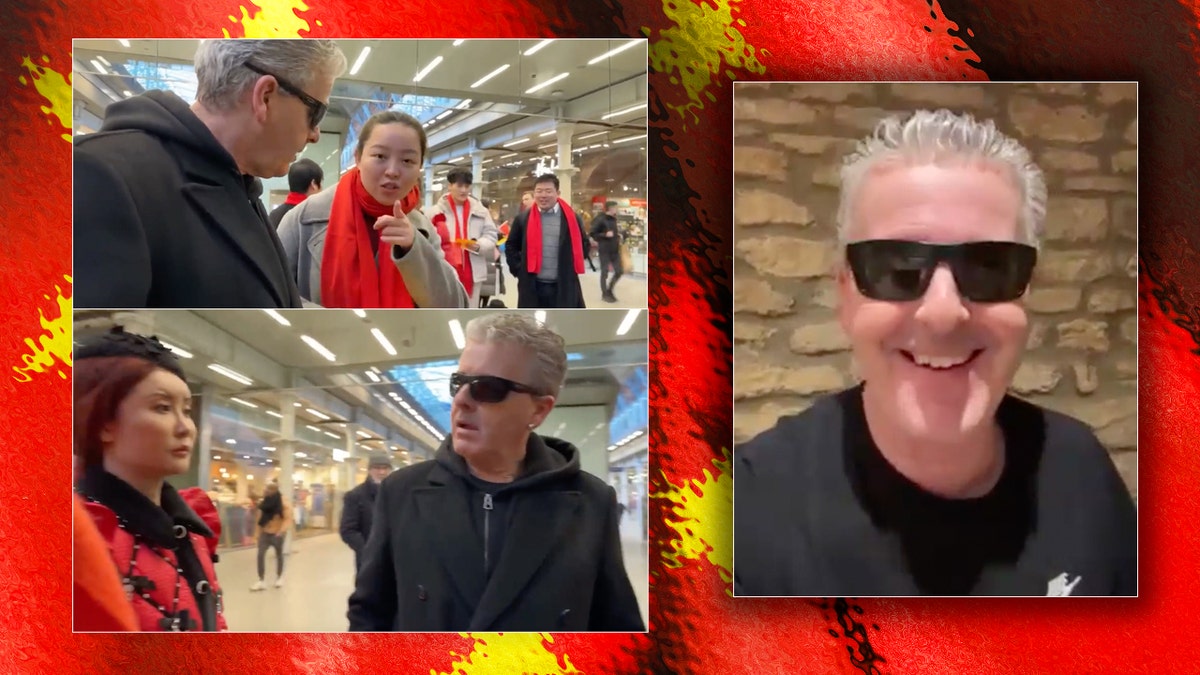
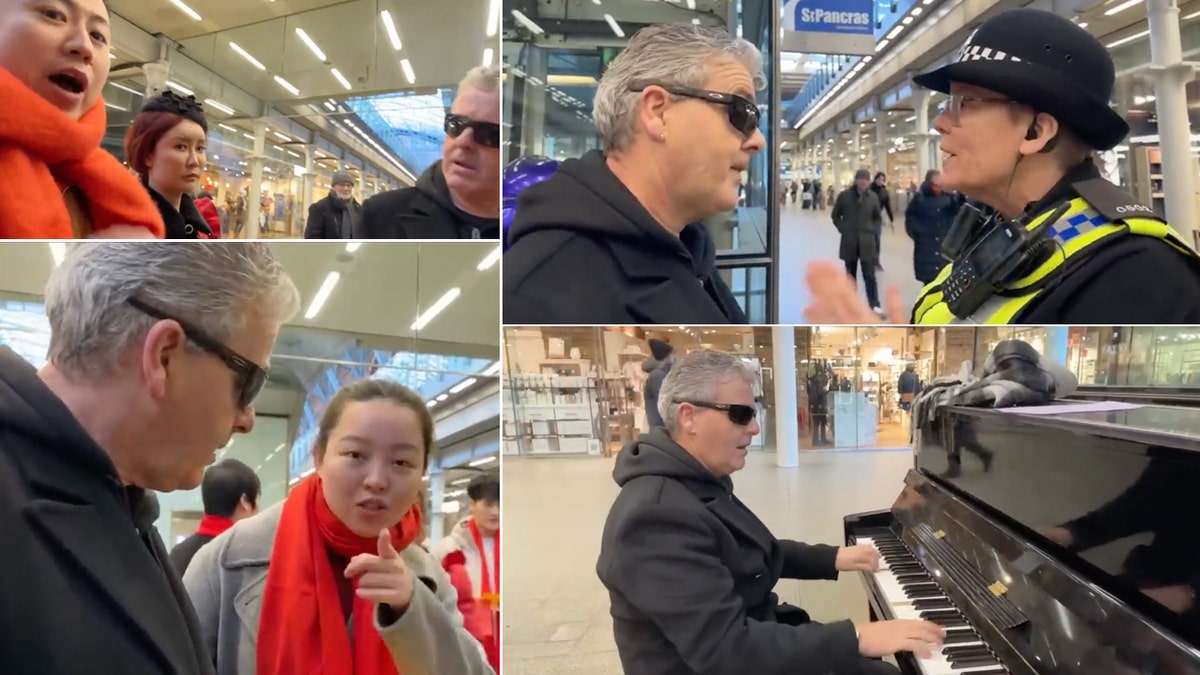
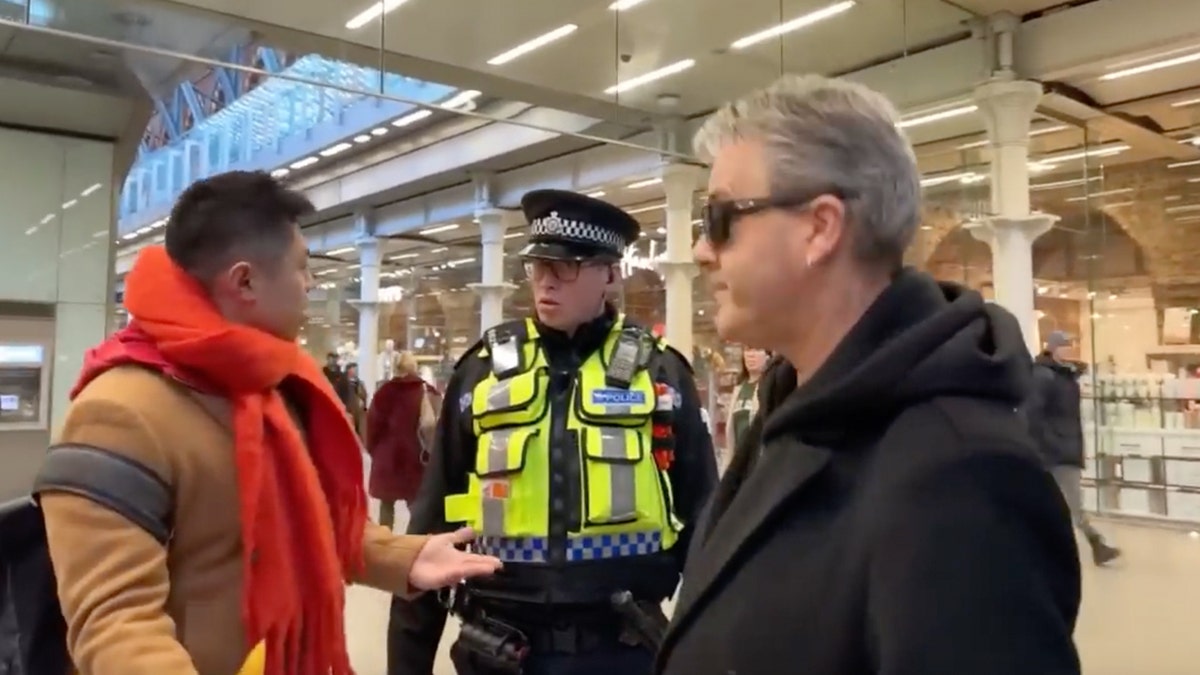
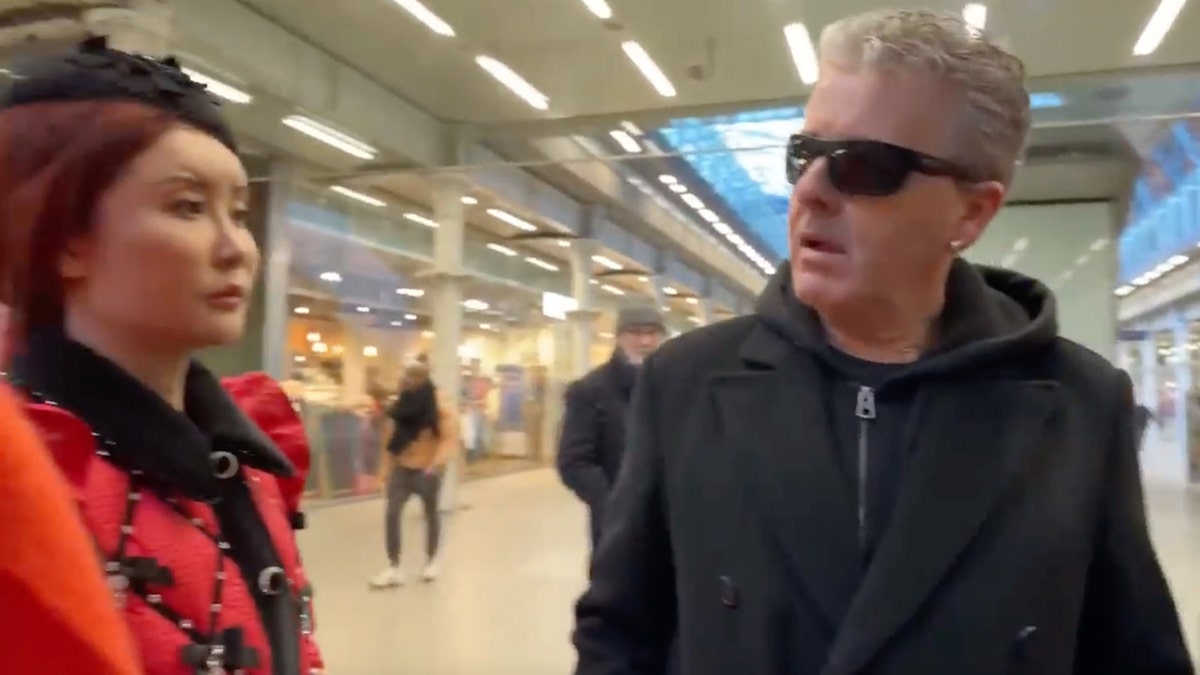
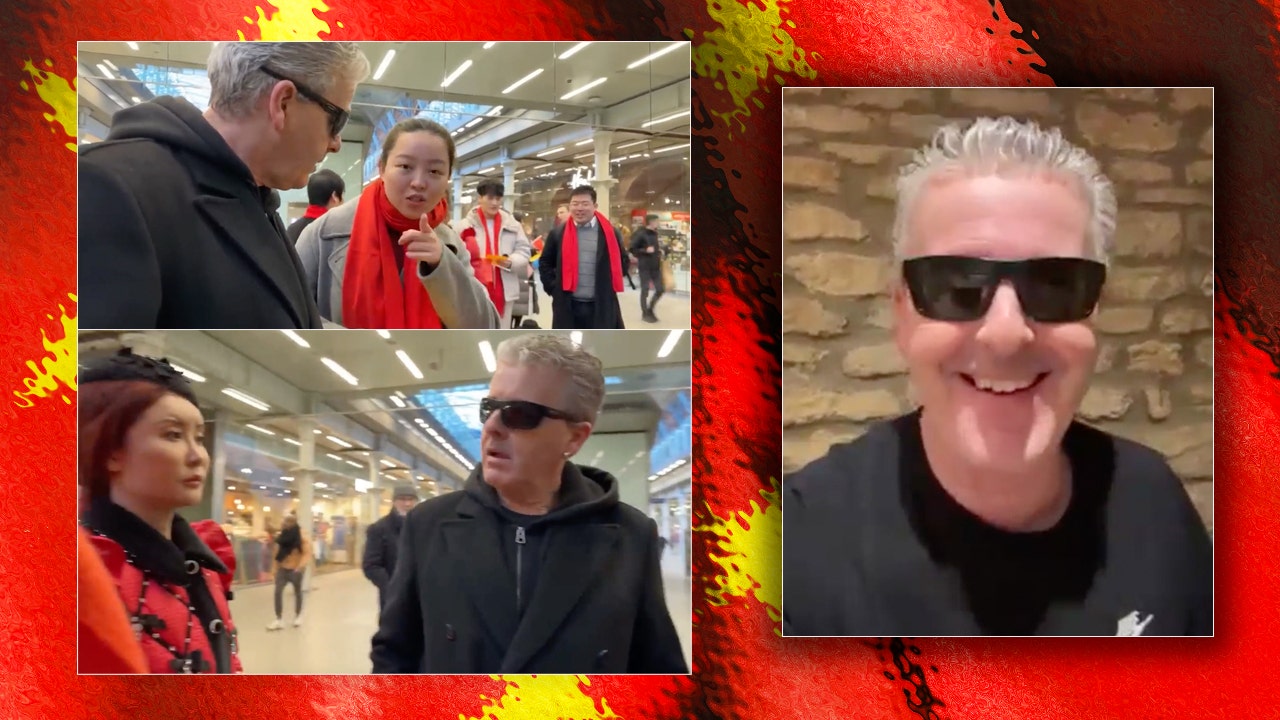



Confidence
80%
Doubts
- It is not clear if there were any laws broken during this confrontation.
Sources
74%
British pianist says viral clash with 'authoritarian' Chinese nationals 'badly backfired on them'
Fox News Media Hannah Grossman Saturday, 27 January 2024 00:52Unique Points
None Found At Time Of Publication
Accuracy
- The clash was over the right to share images online and resulted in threats of legal action and police involvement
- Kavanagh refused to comply with their demands, resulting in an escalation of the situation
- Chinese nationals were waving communist flags during the confrontation
Deception (100%)
None Found At Time Of Publication
Fallacies (75%)
The article contains an example of a dichotomous depiction. The author portrays the Chinese nationals as 'authoritarian' and aggressive while also acknowledging that they enjoy being in the West. This creates a paradoxical image of them which is not supported by any evidence presented in the article.- The author describes the Chinese nationals as having an 'authoritarian mentality' despite enjoying being in the West.
Bias (85%)
The author uses the phrase 'authoritarian' to describe the tone of speech and behavior of Chinese nationals in a viral video. The use of this word is biased as it implies that all people from China are inherently authoritarian which is not true. Additionally, the author describes one person who was holding a communist flag as being part of an 'authoritarian mentality' which again implies that everyone from China holds such views.- The use of the word 'authoritarian' to describe Chinese nationals in a viral video is biased.
Site Conflicts Of Interest (0%)
The article by Hannah Grossman contains multiple examples of conflicts of interest. The author has a personal relationship with Brendan Kavanagh and may be biased towards him in her reporting. Additionally, the article is published on Fox News which is known for its conservative bias.Author Conflicts Of Interest (100%)
None Found At Time Of Publication
70%
London pianist goes viral after clash with 'Chinese TV' group over livestream
USA Today Thursday, 25 January 2024 00:00Unique Points
- A British piano teacher, Brendan Kavanagh, had a confrontation with people claiming to be associated with Chinese TV at the St. Pancras Underground station in London while he was livestreaming a performance.
- The group of people became aggressive and told Kavanagh not to touch a woman holding a flag when he reached towards it.
- British Transport Police intervened and requested that Kavanagh not use the footage because the group works for a company, and their faces can't be shown on TV or someone's channel due to money being made.
Accuracy
- A British pianist, Brendan Kavanagh, had a confrontation with people claiming to be associated with Chinese TV at the St. Pancras Underground station in London while he was livestreaming a performance.
Deception (50%)
The article is deceptive in several ways. Firstly, the author claims that the group of people holding Chinese flags are associated with 'Chinese TV', however there is no evidence to support this claim and it cannot be verified independently. Secondly, when Kavanagh left the piano to approach the group, one person shouted at him not to touch a woman with their flag which implies that they own or have rights over her image. This contradicts British law which does not grant citizens legal rights over likenesses of others in public places. Thirdly, Google responded to a request for comment by pointing to YouTube's privacy policy but did not make any statements about the video specifically, suggesting that they are trying to avoid being held accountable for their actions. Lastly, the group received mockery on Chinese social media site Weibo which implies that there is a cultural clash over rights and ownership of images.- The author claims that the group holding Chinese flags are associated with 'Chinese TV', however this cannot be verified independently.
Fallacies (85%)
The article contains several examples of informal fallacies. The author uses an appeal to authority when they quote a person claiming to be associated with Chinese TV without providing any evidence or context for their claim. Additionally, the author uses inflammatory rhetoric by describing the group as aggressive and using language like 'protecting image rights' which is not accurate in this situation.- The author quotes a person claiming to be associated with Chinese TV without providing any evidence or context for their claim. This is an example of an appeal to authority fallacy.
Bias (85%)
The article contains examples of religious bias and monetary bias. The author uses the phrase 'Chinese TV' to describe a group of people holding Chinese flags, which implies that they are associated with a specific television network or channel. This is not necessarily true and could be misleading. Additionally, the British Transport Police officer requests that Kavanagh not use the footage because there is money being made and their faces cannot be shown on TV or someone's channel. This suggests that there may be financial interests at play in this situation.- The author uses the phrase 'Chinese TV' to describe a group of people holding Chinese flags, which implies that they are associated with a specific television network or channel.
Site Conflicts Of Interest (50%)
The article discusses a conflict of interest between Brendan Kavanagh and the Chinese TV group that was livestreaming at London St. Pancras Underground station. The author does not disclose any financial ties or personal relationships with either party.Author Conflicts Of Interest (0%)
None Found At Time Of Publication
51%
Viral video of Chinese tourists' confrontation with UK pianist sparks debate
Yahoo News US Ryan General Saturday, 27 January 2024 01:00Unique Points
- The confrontation began when Kavanagh was playing the piano and one member of the Chinese group wanted to use it
- A woman from the Chinese group objected to being filmed by Kavanagh for 'Chinese TV', stating their footage was 'not disclosable'
- 斬cusations of inappropriate touching and provocation were made against Kavanagh, which he denied
- The British Transport Police affirmed Kavanagh's right to film in a public place and revealed that the tourists had requested the video's deletion
Accuracy
- A viral video captured a confrontation between British pianist Brendan Kavanagh and a group of Chinese tourists at the St Pancras International station in London
- Accusations of inappropriate touching and provocation were made against Kavanagh, which he denied
Deception (50%)
The article is deceptive in several ways. Firstly, the author refers to the tourists as Japanese at one point when they are clearly Chinese. This is a lie by omission and shows that the author intentionally misrepresented their nationality for no apparent reason other than to stir up controversy.- The video shows Kavanagh referring to the tourists as 'Japanese'.
Fallacies (85%)
The article contains several fallacies. The author uses an appeal to authority when he states that it is not illegal to film in public spaces in the UK and law enforcement lacks the authority to prohibit public filming unless it involves criminal or terrorist activities. This statement assumes that all laws are equal, which is a false premise. Additionally, the author commits a fallacy of dichotomy when he describes members from the Chinese group as either being filmed or not being filmed and implies that there are only two options available to them. The article also contains inflammatory rhetoric in statements such as 'Brendan Kavanagh vehemently denied' and 'One woman accused Kavanagh of provocation'. These statements use strong language to create a sense of conflict, which is not necessary for the reader to understand the situation.- The appeal to authority fallacy:
Bias (0%)
The author of the article is Ryan General. He is known to be hostile to mainstream media and news outlets that publish articles with bias from their authors. The author uses a biased tone in his reporting, implying that Kavanagh was rude and provocative towards the Chinese tourists, while downplaying or ignoring the reasons why they might have felt offended or threatened by his actions. For example, he does not mention that some of them claimed to be filming for Chinese TV and did not want their footage to be shared online without their consent. He also does not acknowledge that Kavanagh may have been unaware of the cultural differences between him and the tourists, or that he was trying to engage with them in a friendly manner. The author's bias is evident in his choice of words, such as calling the confrontation an “intensified” exchange, which suggests that it was Kavanagh who escalated the situation rather than the tourists. He also uses phrases like “mistakenly addressed them as Japanese instead of Chinese”, which implies that this was a minor and harmless mistake, when in fact it could have been seen as disrespectful or offensive by some members of the group. The author also does not provide any examples of Kavanagh's alleged “inappropriate touching”, which is a serious accusation that should be backed up with evidence if it is true.- He was initially seen engaging with the tourists, referring to them as 'Japanese'.
- When she declined, he returned to the piano and commented, 'Whatever, I think British girls are more fun.',
Site Conflicts Of Interest (50%)
The article by Ryan General has multiple examples of conflicts of interest. The author is affiliated with the DrKBoogieWoogie YouTube channel and Brendan Kavanagh, which are mentioned in the article as being involved in a confrontation between Chinese tourists and a UK pianist at a public piano located near a train station in London.- The article mentions that Brendan Kavanagh was present during the confrontation and may have played a role in it.
- The author is affiliated with the DrKBoogieWoogie YouTube channel, which is mentioned as having been involved in the incident.
Author Conflicts Of Interest (50%)
The author has a conflict of interest on the topic of Chinese tourists as they are part of the topics provided and there is no disclosure in the article.
66%
London St Pancras piano moved after musician and Chinese tourists row
The Standard Ltd. Anthony France Wednesday, 24 January 2024 17:37Unique Points
- A piano at London's St Pancras International has been moved after a row between musician Brendan Kavanagh and Chinese tourists
- `Dr K` denies accusations of touching one of the women, which led to British Transport Police asking him not to upload the clip to YouTube
Accuracy
- The argument began when the tourists asked Kavanagh to stop filming their faces during his livestream
Deception (30%)
The article is deceptive in several ways. Firstly, the title implies that a piano was moved due to maintenance works when it was actually moved because of an incident involving a musician and Chinese tourists. Secondly, the author misrepresents what happened between the artist and flag-waving Chinese tourists by stating that they demanded Kavanagh stopped filming their faces during his livestream, which is not accurate. Thirdly, the article omits important details such as why British Transport Police officers asked Brendan Kavanagh to stop uploading the clip to YouTube.- The title implies that a piano was moved due to maintenance works when it was actually moved because of an incident involving a musician and Chinese tourists. This is deceptive.
Fallacies (70%)
The article contains an appeal to authority fallacy when it states that the Elton John piano has been relocated a few metres outside of the cordoned off area and remains open for public use. This statement implies that there is some sort of authoritative figure who made this decision without providing any evidence or context.Bias (100%)
None Found At Time Of Publication
Site Conflicts Of Interest (50%)
Anthony France has a conflict of interest on the topic of London St Pancras International as he is an employee of The Standard newspaper which owns the site.Author Conflicts Of Interest (50%)
Anthony France has a conflict of interest on the topic of London St Pancras International as he is reporting for The Standard which is owned by News UK. He also has a personal relationship with Brendan Kavanagh who was involved in the incident.
75%
Chinese group in UK demand YouTube pianist remove their faces from stream
Business Insider Matthew Loh Saturday, 27 January 2024 01:03Unique Points
- A group of Chinese people confronted a pianist in a London train station
- The clash was over the right to share images online and resulted in threats of legal action and police involvement
- Chinese nationals were waving communist flags during the confrontation
Accuracy
- Kavanagh refused to comply with their demands, resulting in an escalation of the situation
Deception (50%)
The article is deceptive in several ways. Firstly, the author claims that Kavanagh's camera captured their faces but it did not as he was live streaming and there are no images of them on his video. Secondly, the group claimed to work for Chinese TV which has not been verified by Business Insider. Thirdly, they threatened legal action against Kavanagh despite him being in a public place and having every right to film what happened.- The author claims that Kavanagh's camera captured their faces but it did not as he was live streaming and there are no images of them on his video. This is deceptive because the article implies that they were caught on camera when in fact they weren't.
Fallacies (85%)
The article contains an example of a false dilemma fallacy. The group is presented as having only two options: either Kavanagh films them or they will not allow him to film in public places. This ignores the possibility that there may be other ways for Kavanagh to film in public without violating their rights.- The group is presented as having only two options: either Kavanagh films them or they will not allow him to film in public places.
Bias (85%)
The author of the article is Matthew Loh and he has a history of bias against Chinese people. He uses language that dehumanizes them by referring to their flag as 'purple balloons' which implies they are childish or unimportant. The group in question also appears to be filming for Chinese TV, which could indicate that the author is trying to portray them negatively.- A man in the group told him they were protecting their rights to their 'voice and images'
- Kavanagh protested, saying he was live streaming in a public place
- The woman who stepped forward with her phone to film Kavanagh as he played in tandem with another pianist
Site Conflicts Of Interest (100%)
None Found At Time Of Publication
Author Conflicts Of Interest (50%)
The author has a conflict of interest on the topic of Chinese group in UK as they are reporting on an incident involving Brendan Kavanagh, who is a YouTube pianist and member of the People's Republic of China. The article does not disclose this conflict.